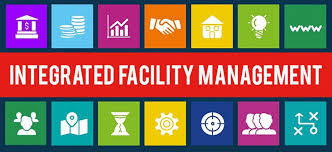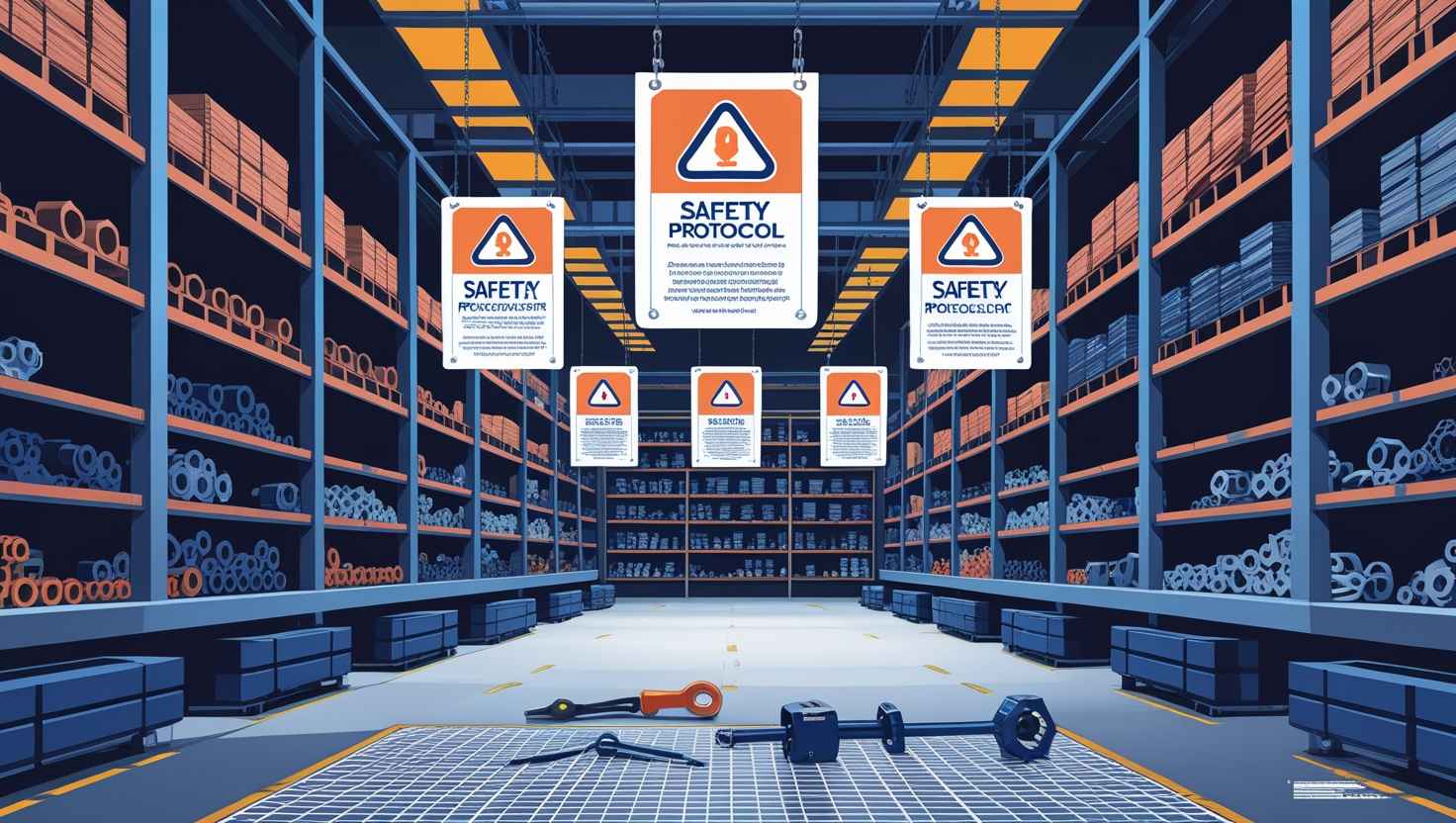In today’s competitive business landscape, companies are constantly seeking ways to optimize operations and enhance productivity. Integrated facility management companies have emerged as key partners in this quest, offering comprehensive solutions that streamline facility operations and reduce inefficiencies.
By consolidating various services under one umbrella, these companies enable businesses to achieve significant cost savings while maintaining a well-managed facility environment. This not only boosts employee satisfaction and comfort but also drives productivity to new heights.
In this article, we will delve into how integrated facility services can transform the way businesses operate, spotlighting real-world success stories and client testimonials that underscore their impact.
Building a Well-Managed Facility Environment
National facilities maintenance companies play a pivotal role in creating and maintaining well-managed facility environments. These companies bring a wealth of expertise and resources, ensuring that all facility aspects are handled efficiently and professionally.
By offering a wide range of services, from routine maintenance to emergency repairs, they provide comprehensive support that keeps facilities in top condition. Their ability to operate on a national scale also means they can standardize processes and implement best practices across multiple locations, ensuring consistency and quality.
Moreover, national facilities maintenance companies often leverage advanced technologies and data analytics to monitor facility performance and proactively address potential issues. This proactive approach not only minimizes disruptions but also extends the lifespan of facility assets, ultimately saving businesses time and money. By entrusting facility management to these experts, businesses can ensure a well-maintained environment conducive to productivity and growth.
5 Effective Management Strategies
Effective facility management hinges on strategic approaches and best practices. In this section, we outline five key strategies that integrated facility management companies employ to ensure optimal performance and efficiency in their clients’ operations.
1. Preventive Maintenance
Preventive maintenance is a cornerstone of effective facility management. It involves regular inspections and servicing of equipment to prevent breakdowns and extend asset life. Regular maintenance not only enhances the performance of machinery but also helps in identifying potential issues before they become major problems, thus reducing the likelihood of costly repairs. By scheduling routine check-ups and maintenance tasks, integrated facility management companies can ensure that all systems run smoothly and efficiently. This proactive approach helps in maintaining optimal operational standards and reduces the risk of unexpected downtimes.
Moreover, preventive maintenance contributes to the longevity of assets. By regularly attending to minor issues and keeping equipment in top condition, businesses can delay the need for expensive replacements. It also leads to safer working environments, as well-maintained equipment is less likely to fail and cause accidents. Through preventive maintenance, integrated facility management companies help businesses save both time and money while keeping operations running without a hitch.
2. Using Technology for Proactive Management
In the modern age, the integration of technology in facility management has become indispensable. IoT devices and data analytics play a significant role in monitoring facility conditions in real time. These technologies collect data from various sensors placed throughout a facility, providing valuable insights into the performance and condition of different systems. This data-driven approach enables facility managers to make informed decisions and address issues before they escalate. The ability to monitor equipment and systems continuously allows for quick identification and resolution of problems, enhancing overall operational efficiency.
Additionally, the use of technology brings about a level of automation that streamlines many facility management tasks. Automated alerts and notifications can inform facility managers of irregularities or potential issues, allowing them to take immediate action. This not only minimizes disruptions but also enhances the overall reliability and performance of the facility. By embracing technology, integrated facility management companies can offer more responsive and efficient services, ensuring that businesses can operate without interruption.
3. Centralized Management Systems for Streamlined Operations
Integrated facility services often employ centralized management systems to streamline communication and coordination among different service areas. These systems serve as a single point of control, enabling facility managers to oversee all aspects of facility operations from one platform. The centralization of information and processes simplifies the management of complex facilities, ensuring that all service areas are aligned and functioning cohesively. This unified approach results in more efficient operations and reduces the likelihood of miscommunication or oversight.
Centralized management systems also facilitate better resource allocation and scheduling. With all information readily accessible, facility managers can make more informed decisions regarding the deployment of staff and resources. This leads to more efficient use of personnel and materials, further enhancing operational efficiency. By implementing centralized management systems, integrated facility management companies can ensure that all aspects of facility management are coordinated seamlessly, contributing to a more productive and well-organized environment.
4. Sustainable Practices for Long-Term Success
Sustainability is becoming an increasingly important aspect of facility management. Integrated facility management companies are adopting sustainable practices to reduce environmental impact and ensure long-term success. This includes the implementation of energy-efficient systems, waste reduction programs, and the use of sustainable materials. By prioritizing sustainability, these companies help businesses reduce their carbon footprint and operate in an environmentally responsible manner. This not only supports corporate social responsibility goals but also leads to cost savings through reduced energy consumption and waste disposal expenses.
Moreover, sustainable practices contribute to the overall health and well-being of building occupants. Green building certifications and eco-friendly initiatives create healthier indoor environments, which can improve employee satisfaction and productivity. Integrated facility management companies that adopt sustainable practices position themselves as forward-thinking partners, capable of supporting businesses in their efforts to achieve sustainability targets and enhance their reputation as responsible corporate citizens.
5. Continuous Improvement through Training and Development
Continuous improvement is a vital component of effective facility management. Integrated facility management companies invest in ongoing training and development programs for their staff to ensure they are equipped with the latest knowledge and skills. By staying updated with industry trends and advancements, facility managers can implement best practices and innovative solutions that drive efficiency and effectiveness. Training programs also emphasize the importance of safety protocols and regulatory compliance, ensuring that all operations adhere to the highest standards.
In addition to improving individual competencies, continuous training fosters a culture of excellence within the organization. It encourages employees to take ownership of their roles and contribute to the overall success of the facility management program. By prioritizing training and development, integrated facility management companies can maintain a highly skilled workforce capable of delivering top-notch services. This commitment to continuous improvement not only enhances operational performance but also ensures that businesses receive the highest quality of facility management services.
Evaluating Integrated Facility Management Companies
Selecting the right integrated facility management company is crucial for maximizing the benefits of streamlined operations and enhanced work environments. Start by evaluating the company’s range of services to ensure they can meet all your facility needs under one roof. Look for providers with a proven track record and positive client testimonials, as these indicate reliable and effective service.
Additionally, consider the company’s use of technology and data analytics; these tools are essential for proactive management and optimization of facility performance. It’s also important to assess the company’s scalability and flexibility, ensuring they can grow with your business and adapt to changing requirements.
Finally, request case studies or examples of cost savings and operational improvements achieved for other clients. This will provide concrete evidence of the company’s ability to deliver tangible benefits. By carefully evaluating these factors, businesses can choose an integrated facility management partner that aligns with their goals and needs.
Final Thoughts
Integrated facility management offers a strategic advantage for businesses aiming to streamline operations and boost productivity. By partnering with experts who can handle the complexities of facility management, companies can focus on their core activities, confident that their facilities are in capable hands.
The benefits of integrated facility management extend beyond operational efficiency. By adopting preventive maintenance strategies, leveraging advanced technologies, and employing centralized management systems, businesses can enhance performance and reduce costs. Sustainable practices and continuous staff development further contribute to creating a productive, safe, and environmentally responsible work environment.
When selecting an integrated facility management partner, careful evaluation is essential. Look for a provider that offers comprehensive services, utilizes technology effectively, and has a proven track record of success. By choosing wisely, businesses can foster a well-managed facility environment that supports long-term growth and success.
In conclusion, integrated facility management is not just about maintaining buildings—it’s about creating a foundation for operational excellence and sustainable growth. With the right partner, businesses can thrive in today’s competitive landscape, benefiting from enhanced efficiency, cost savings, and a more productive workforce.















